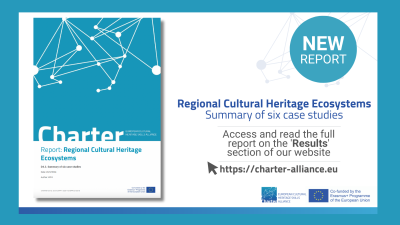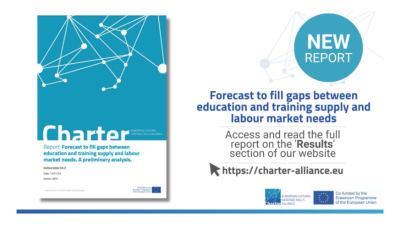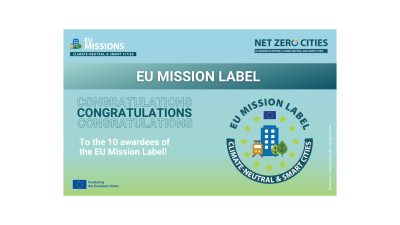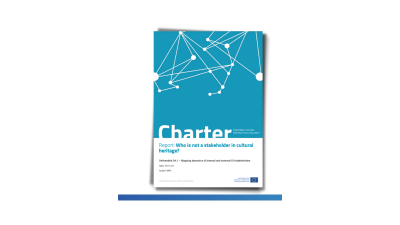
Latest Updates
- By Astrid Hannes
How is cultural heritage integrated into regional development? CHARTER Alliance publishes new report on six regional case studies conducted by ERRIN
CHARTER, the European Cultural Heritage Skills Alliance funded by Erasmus+, has released a new report showcasing findings and conclusions from six regional case studies conducted by ERRIN members in the Basque Country (Spain), Sibiu (Romania), Bremen (Germany), Alentejo (Portugal), Tuscany (Italy), and Västra Götaland (Sweden) in 2021-2023. The report synthesises how skills for cultural heritage are integrated into regional development policies and strategies, examining sector-integrated dynamics within these regional ecosystems. The report provides recommendations for developing long-term regional skills policies, enhancing skills governance and strengthening skills intelligence at the regional level through data-driven policies.
- By Astrid Hannes
New CHARTER Report: Forecast to fill gap in Heritage Education and Training
In its new report, "Forecast to fill gaps in Heritage Education and Training", the CHARTER EU Alliance delves into the gaps and needs of Cultural Heritage professionals in Europe. This report maps the main challenges for professional development in heritage, encompassing technology, sustainable development, professional collaboration, public administration, diversity, funding, social uses, knowledge transfer, occupation coding, and skills description.
- By Camila DE EPALZA AZQUETA
GazteFilm Fest- PARTNER SEARCH
GazteFilm Fest is a unique festival made for and by the children, formed by a collaboration of two entities: Zinhezba and Kalakalab. They are searching for partners to apply to the Interreg Europe call to grow, strengthen and label their activities, create a network of similar festivals and future generation skills and creative education, and use audiovisual tools for the twin transition and social cohesion.
- By Gianpiero Petruzziello
Ten European cities awarded with the EU Mission Cities Label
On 12 October, the European Commission awarded the first ten European cities with the Label of ‘EU Mission Climate-Neutral and Smart Cities’ for their plans to achieve climate-neutrality by 2030. The EU Mission Label symbolises a crucial milestone, not only recognising the comprehensive plans of these cities to achieve climate neutrality by 2030 but also serves as a catalyst for facilitating access to both public and private funding to support these ambitious goals.
- By Rodolphe Doité
A look back at the Final Conference of DT4REGIONS
On Wednesday 21 and Thursday 22 June 2023, ERRIN participated in the Final Conference of the DT4REGIONS project.
- By Astrid Hannes
CHARTER Alliance releases a new report on cultural heritage stakeholders’ roles and dynamics
CHARTER Alliance publishes a new report mapping cultural heritage stakeholders, looking at cultural heritage as an economic sector and labour market with interacting stakeholders in anticipated roles, whose dynamics, skills and competencies will affect the quality of heritage as a resource and common good.




